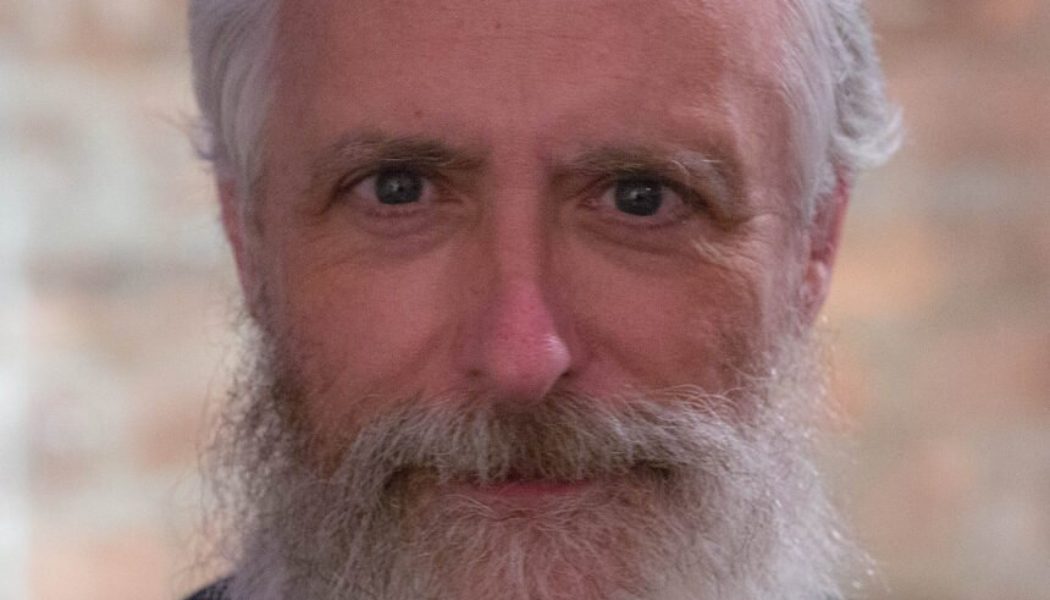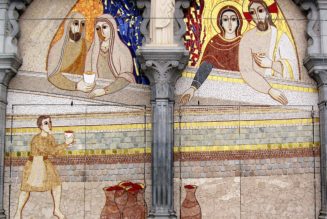
 Temptation works like gravity. When you’re trying to walk uphill, it pulls you downhill. Worse, at the bottom of the hill are places you think you want to go and at the top of the hill are places you don’t want to go — you want the place with the great ribs rather than the gym. It’s easier to go downhill, and you want to go downhill.
Temptation works like gravity. When you’re trying to walk uphill, it pulls you downhill. Worse, at the bottom of the hill are places you think you want to go and at the top of the hill are places you don’t want to go — you want the place with the great ribs rather than the gym. It’s easier to go downhill, and you want to go downhill.
You can say that societies have their own temptations that work the same way. Huge numbers of people all making small decisions for themselves, usually in their personal best interest, as a group tend to go downhill as a matter of course. That’s why to understand the Church today, we should understand how people in groups work.
We have a sad example in our own Church’s sex abuse scandal. The pain of publicly dealing with a predator could be avoided by not dealing with him, by not removing him from office and by not telling his people and possible victims — and therefore the newspapers and all the Church’s enemies — what he’d done.
Everyone who covered for him could tell themselves that he’d just made a mistake, he’ll change, psychiatrists can cure him, it was really the victim’s fault, he’s a good priest we can’t afford to lose, we can make sure he doesn’t do it again. And most of all: Dealing with the problem in public will hurt the faithful.
They had lots of good-sounding excuses for hiding the abuse away.
They all walked downhill. The effect of all those people walking downhill for decades and decades was a crash at the bottom. Which was perfectly predictable, had anyone thought about the kinds of temptations the Church in America faced.
Here’s one way this worked. Look back a hundred years or so.
The Church formed communities, gave people their identities, their way of understanding the world. In the Catholic neighborhoods where most Catholics lived, it basically created a whole life. It was the institution binding together people who were economically marginalized and religiously oppressed.
Catholics felt a bit us-versus-them, the Catholics versus mainstream American society. They were the underdogs. They had to stick together. They had to protect the Church.
At the same time, dioceses had grown bigger and bigger, and their hierarchs had grown loftier and loftier. The Church, whose ideal is a pastor-with-his-people, a shepherd-with-his-flock, became a system with lots of moving parts. It began to live by impersonal processes and rules, with the bishop several layers of people away from the flock.
That’s all natural. You have a body that big, that’s the way it has to work. The bishop can’t possibly make every decision and deal with everyone. And the body eats money. Parishes need new roofs, need to get the boiler fixed, need to pay and insure staff. Hospitals need new equipment. Seminarians need training. Missionaries need support.
Here’s just one of the ways such a system almost invites extensive sexual abuse and the cover-up after. (There are several others.) The system demands a continuous supply of clergy — for years demanded a growing supply. In any institution, that much need lowers quality control, unless the people who run it are very alert and careful.
And most times they’re not. The Church wasn’t.
At the same time, the Church — particularly its schools — offered predators what the military calls a target-rich environment. People trust their priests. They can’t imagine their priests would do anything that bad. That creates an institution to which molesters are attracted.
If an institution doesn’t know that and doesn’t have ways of keeping them out, which the American church didn’t, they’ll get in. When someone caught an abusive priest, the people responsible for dealing with him had many reasons to deal with him quietly. Which is to say, not really deal with him at all.
Because that roof needs to be replaced, no matter who or what the priest. The hospital needs new equipment to save lives no matter what the diocese’s clergy do. And the Church can’t afford the scandal. People might leave, and then where would they be?
The bishop and his staff felt gravity’s downward pull. They could rationalize walking downhill. At the top of the hill was public shame and cascading problems. At the bottom was (they thought) peace and quiet. Though stewards of the body of Christ, they did what the world pushed them to do. Not just because it was the easy way, but because they didn’t understand how the world works well enough to avoid temptation.
So down they went. Eventually, there came the inevitable crash. Now that we see this, we need to learn from it.
David Mills writes from Pennsylvania. “Wordly Catholic” appears biweekly at OSV News.









